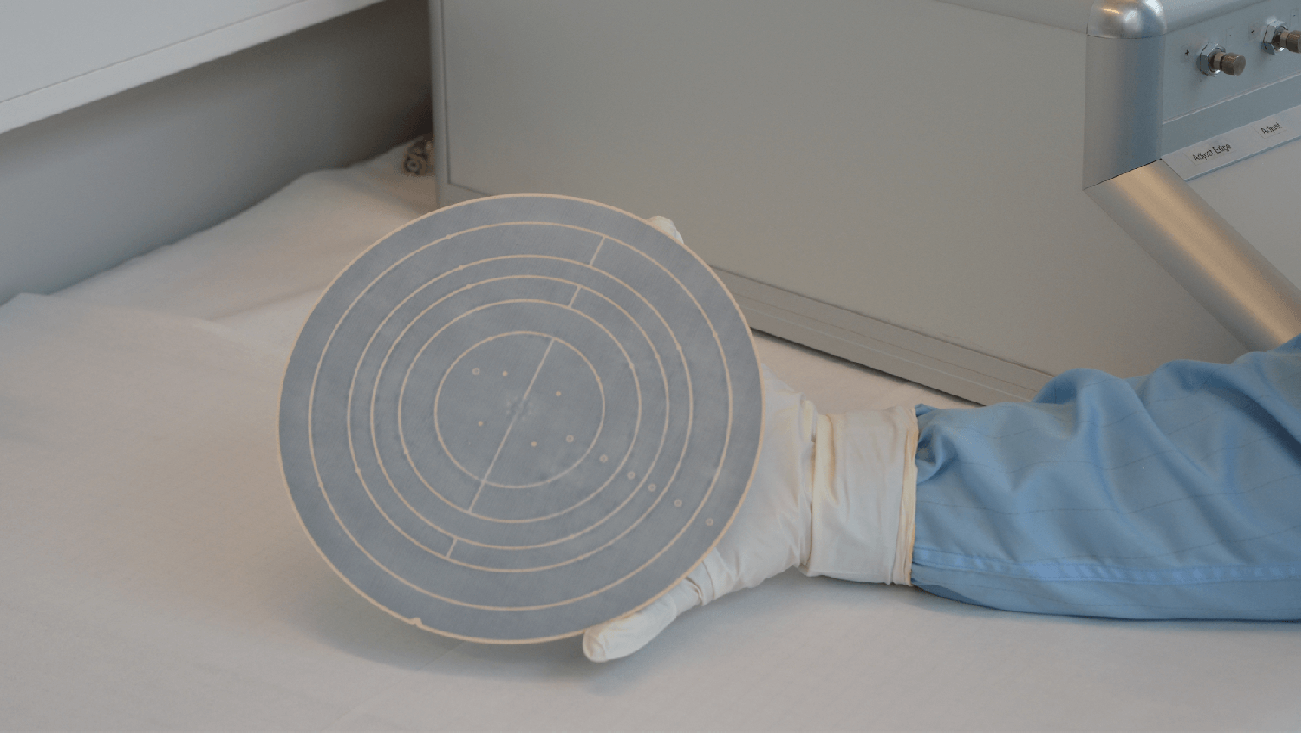
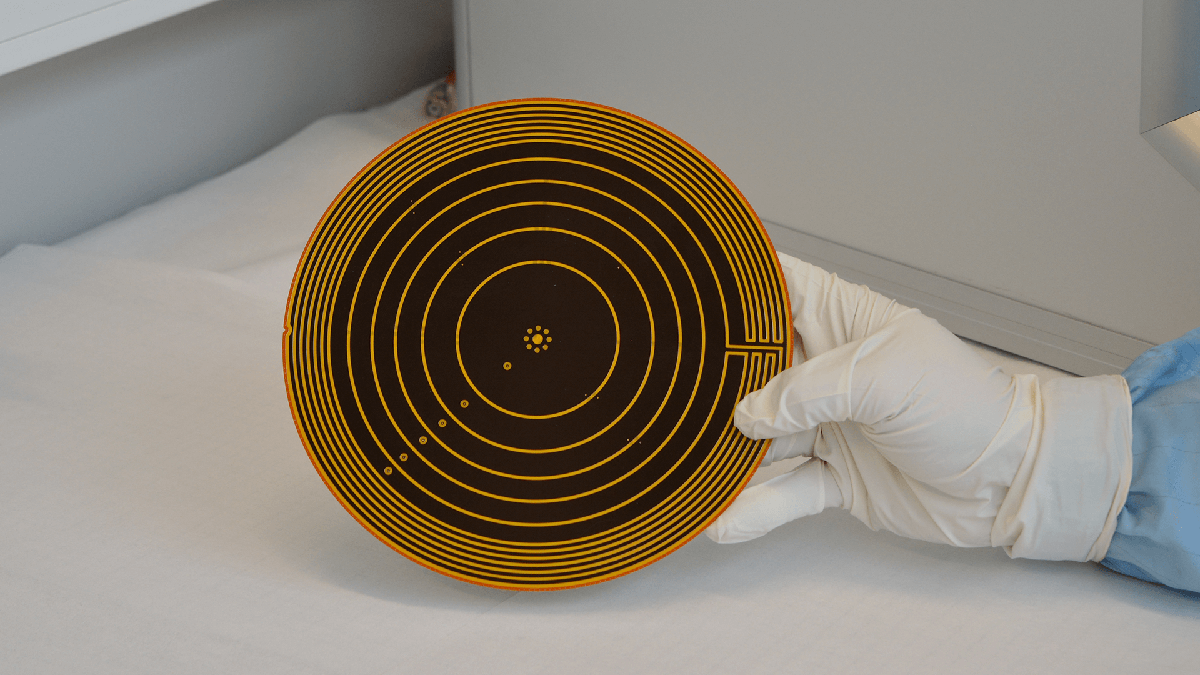

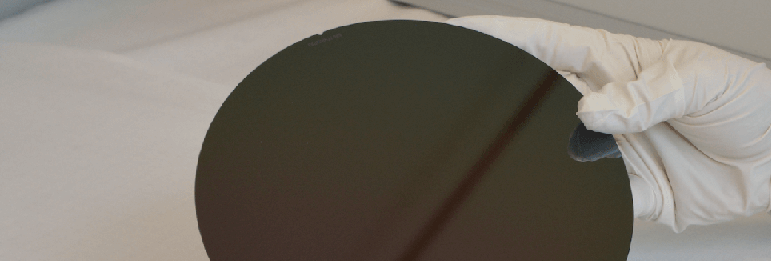
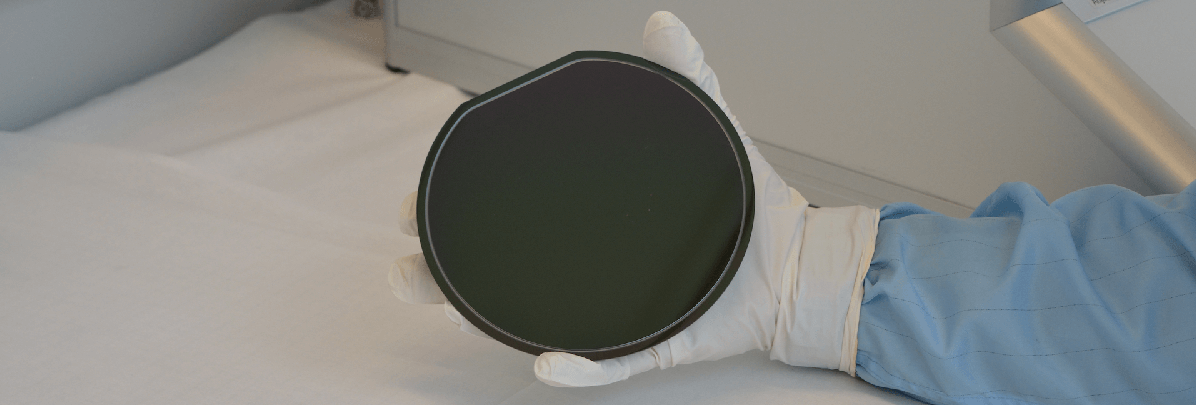
Transferable Electrostatic Carriers
The Transferable Electrostatic Carrier (T-ESC®) is an adhesive-free temporary bonding method that enables the safe and reliable processing of fragile substrates and various materials such as ultra-thin substrates, GaAs, InP, LN, LT, thin silicon, thin MEMS wafers and many more. The basic concept behind this sustainable temporary bonding technology involves the use of electrostatic forces to chuck device wafers onto mobile rigid Carriers (T-ESC®).
These wafer-carrier packages can then be handled and securely processed like wafers of standard thickness through existing machines within the customer facility. Therefore, existing cassettes, handling tools and fabrication equipment can be used without modifications. Additionally, the warping and bowing of thin and ultra-thin substrates are eliminated. The Transferable Electrostatic Carriers are available in the standard sizes from 2" to 12" and in customized shapes adapted to the intended application.
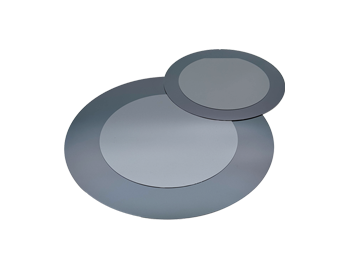
The Adapter Carrier
Each T-ESC® type is offered as an adapter version that allow machines to process device wafers of different diameters and forms. The smaller device wafer can be temporarily bonded to an Adapter Carrier and is held in position by electrostatic forces. For example, a 4”/8” Adapter T-ESC is suited to fixate a 4” wafer on an 8” Adapter T-ESC.
The package of a 4” wafer and an 8” Adapter Carrier can now be used in the intended equipment, e.g. an 8” Stepper. The Stepper tool recognizes a standard 8” substrate and can now process the smaller 4” wafer sizes.
(MEMBER OF THE T-ESC® FAMILY)
Glass Fiber T-ESC®
The Glassfiber Transfer ElectroStatic Carrier (Glass Fiber T-ESC®) enables temporary bonded wafer thinning without the need of adhesives, starting from a thick wafer grinding down to ultra-thin wafer thickness. This mobile rigid wafer support helps to generate high yield even when going to the ultra-thin wafer thicknesses. Furthermore, this mobile electrostatic carrier can be used in process applications such as handling and probing.
Glass Fiber T-ESC®
Typical Applications
-
Compatibility with existing handling systems (transport cassettes, vacuum, Bernoulli or mechanical end effectors etc.)
-
High flatness
-
Reusable
-
Sizes from 2" to 12", customized shapes and features possible
Recommended Processes:
-
Grinding
-
Handling
-
Probing
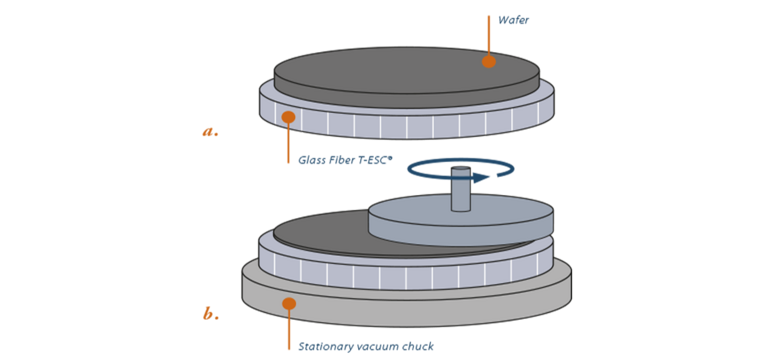
Grinding
Grinding is a substrate thinning process, where material is mechanically removed.
During the wafer processing the wafer needs to be transferred back and forth from the cassettes to the tools and also inside the tools from one station to the other. For fragile substrates this is already challenging, because they tend to break or get cracks, which can lead to future breakage. Also bowing of thinned substrates brings a lot of trouble for all tooling because they are usually not designed for this very special operation. Temporary bonding with our T-ESC® is a great help here as the processing tools only see a standard wafer and trouble with handling. Therefore, the wafer breakage is eliminated.
Various probing methods exist. They are used to check the substrate's or device's functionality. E.g. there are optical inspection or electrical probing.
Our Machines
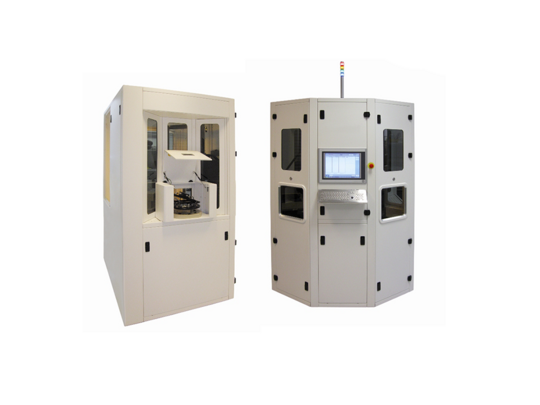
ACU 3000
A fully automated electrostatic chucking/ dechucking unit with up to 120 wafers and/or T-ESC® packages per hour, guaranteeing the highest yield during handling and many diagnostics features.
Learn More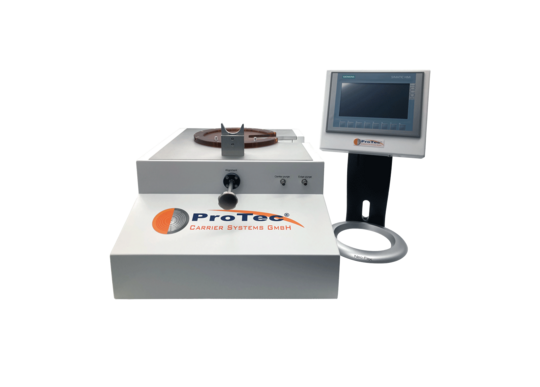
MCU 3000
A manual chucking/ dechucking unit of thin and ultra-thin substrates on carriers (T-ESC®s) for flexible sizes from 4”/6” to 8”/12” with a high flexible mobile handling tool and diagnostics features.
Learn More